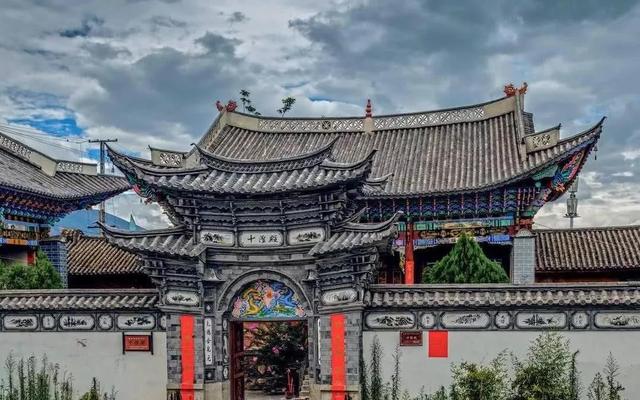Local government's "chain" marathon: Who is the "blockchain capital"?
Author: Wang Qiao
Source: Zinc Link
Editor's Note: The original title is "Local Government's "Chain" Marathon"
After the central collective study, the blockchain heat has risen again, and major cities also hope to take the opportunity to catch up with the blockchain.
- Visa develops a blockchain-based joint computing system for processing large-scale private data
- Web 3 Series | How to achieve leapfrogging from organizational form and technology evolution?
- Heavy news! The first "Industrial Blockchain Summit Forum" hosted by the central media came.
According to the zinc link, various departments have organized several meetings, listened to the opinions of all parties, and visited the site, talked about new policies, and formulated new support plans.
Fund subsidies, policy tilt, major cities to develop a new layout of blockchain technology, combined with the real economy, landing application scenarios, relying on advantageous industries, accelerate the development of "blockchain +".
Local governments want to attract more capital and companies to enter the market, and then achieve overtaking in corners. A "chain" marathon has kicked off.
First, who is the "blockchain capital"?
Beihanghang Shenguang, who is the "blockchain capital"? This debate has not been conclusive. Different cities have different geographical locations, industrial planning, capital, and talents, and their blockchain industry layouts are also different.
Hangzhou relies on the foundation of the Internet to gather a group of outstanding software talents. Therefore, the technical atmosphere at the bottom of the blockchain is very good, and the technology-specific unicorn enterprises such as interesting chain technology have been born;
Shanghai has always been an international financial center, where a large number of large financial institutions at home and abroad have gathered. Therefore, the application of blockchain in Shanghai is more inclined to financial technology.
Guangzhou's blockchain “sound volume” mainly comes from Huangpu District. From the perspective of policy support, the intensity is very strong and can even be said to be somewhat radical.
The same is true of Chongqing. However, in Chongqing, which lacks an industrial base, it is not easy to catch up with this wave of enthusiasm.
Beijing is a political and cultural center, a gathering place for large corporate headquarters, and blockchain technology companies based on To B services are naturally yearning for it. On the whole, Beijing's policies are mostly related to financial risk prevention, which is related to the emergence of digital currency fundraising projects.
Shenzhen has always had a strong entrepreneurial atmosphere, a more open urban environment, and more pragmatic entrepreneurs. There are more companies that rely on Hong Kong and Macao, fund-based projects and white papers “one-stop service”.
The policy dividend, the city has also increased the degree of competitiveness, busy taking up the high ground, overtaking the corner. In the end, who will win the first place in this race, the zinc link to sort out the recent layout of major cities (provincial points), may wish to find the answer.
1) Beijing: Focus on government big data
Starting from the government service, Beijing encourages the use of new technologies such as blockchain, artificial intelligence, and big data to optimize the business environment.
On November 12th, Beijing “Optimized Business Environment 3.0” was released. Implementing real estate mortgage loans and registration “once”; upgrading “e-window” to facilitate enterprises to start; “reducing materials, reducing time limits, reducing the number of times”, launching 600 high-frequency government services at the urban level to achieve “do not run once” "or "run at most once."
To truly achieve less running and not running, the primary solution between government departments is the issue of "data sharing." Beijing uses blockchain technology to link the responsibilities catalogues and data of the 53 departments of the city to form a “directory blockchain” system to provide support for data aggregation and sharing.
Liu Xu, director of the Big Data Construction Department of the Beijing Economic and Information Bureau, revealed that Beijing will build a “data blockchain” represented by core government data such as credits and licenses, and introduce multi-party secure computing to consolidate big data and blockchains. Security system.
"In the future, when government data and social data are integrated into one platform, the government is expected to use data to provide "portrait-based" services." Liu Xu said.
Breaking through the data on the chain and achieving sharing is the key to combining blockchains with all industries. Starting from government affairs in Beijing, building a big data platform is a good start.
2) Shanghai: a combination of finance and trade
At present, the number of blockchain R&D enterprises in Shanghai has exceeded 300. Among the top ten academic research rankings of emerging technologies, Shanghai blockchain technology ranks fourth among the 20 international metropolises in the world.

(Image from the network)
On October 27, Wu Qing, deputy mayor of Shanghai, said in his speech at the first Bund Financial Summit that Shanghai will further attract and nurture various financial technology enterprises and traditional financial enterprises in the blockchain to use technology to enhance financial services. Ability to provide counterpart policy services for various financial technology companies in Shanghai.
In order to support the Shanghai Construction Finance Technology Center, on October 30, the central bank's Shanghai headquarters gave 40 policies to encourage financial institutions to innovate their thinking and business ideas, and to adapt to the intelligent development trend, with the help of cloud computing, blockchain, artificial intelligence, and biometrics. Such technologies, relying on the financial big data platform, identify breakthroughs and main directions, and innovate in financial products and services such as smart outlets, intelligent customer service, smart investment, and intelligent risk control.
In addition to the financial sector, cross-border trade is the second largest battlefield for Shanghai's blockchain technology.
On November 7, the Shanghai Electronic Port Blockchain Alliance was formally established by the opportunity of entering the Expo. The Shanghai Municipal Commission of Commerce (City Port Office) will jointly launch a number of application results with Shanghai Customs, Shanghai Hongqiao Management Committee, Shanghai Headquarters of the People's Bank of China, Shanghai Municipal Drug Administration, and various branches of commercial banks. Process and the main links of international trade.
“Shanghai, which missed the Internet, will not miss the blockchain again this time.” This is the evaluation of Shanghai.
3) Shenzhen: full coverage of electronic invoices
Shenzhen has gathered leading companies such as Tencent, Huawei and Thunder, as well as the location of the Central Bank Digital Money Research Institute. As the country's first blockchain electronic invoice pilot city, Shenzhen has laid the foundation for the blockchain tax field.
At present, blockchain electronic invoices have been connected to more than 7,600 enterprises, the number of invoicing has exceeded 10 million, and the amount exceeds 7 billion yuan. It covers hundreds of industries such as financial insurance, retailers, and parking services.
Liu Lei, vice president and secretary general of the China International Taxation Research Association, introduced on November 8th that the current electronic invoices are being fully promoted in the past, and it is expected that "full coverage" will be realized from January next year.
Blockchain electronic invoices are advancing at the speed of Shenzhen.
Secondly, the Central Bank Digital Monetary Research Institute landed in Shenzhen Futian, allowing Shenzhen to take a first-mover advantage in the digital currency field.
In terms of talents, Shenzhen is in short supply. Zhilian Recruitment recently released the "2019 blockchain talent supply and demand and development report" shows that the number of job seekers in the third quarter is 7.12 times of demand, Shenzhen leads demand, Beijing talents get together; Shenzhen average recruiting salary reached 16317 yuan, is the national average near double.
On October 30th, Shenzhen University and Weizhong Bank jointly established the School of Finance and Technology of Shenzhen University, which is specialized in financial technology. At the same time, it plans to lay out different financial technology majors, such as financial big data technology application and blockchain. Finance, insurance technology, regulatory technology, etc., to meet the needs of professional and technical personnel training in various segments of the financial technology industry.
4) Hangzhou: the first to write the blockchain into the government report
On November 11, Che Jun, secretary of the Zhejiang Provincial Party Committee, said at the special study meeting that efforts should be made to create blockchain innovation and industrial centers, and strive to be the vanguard of blockchain development. The blockchain should be regarded as an important breakthrough in core technology innovation, and efforts should be made in the forefront of technology innovation, integration application, talent gathering, system innovation and ecological construction.
Hangzhou is the first city to write the blockchain into the government work report. The technical atmosphere is very good. It has gathered a group of software talents and cultivated head companies like the chain technology, cloud elephant, complex beauty, etc. In the areas of government affairs and justice, there are good applications.
The government's support is also very strong, and it has established government guidance funds and multiple industrial parks. Secondly, universities and scientific research institutions represented by Zhejiang University continue to supply talents and research results.
According to informed sources, the support program for next year has been basically determined, and specific policies are expected to be introduced soon after the year.
Rooted in the underlying technology, landing industry, Hangzhou blockchain development is worth looking forward to.
5) Guangzhou: New Opportunities in Dawan District
On November 9, the Guangzhou City Block Chain Industry Association, the Hong Kong Blockchain Industry Association and the Macau University Innovation Center jointly established the Guangdong, Hong Kong and Macau Dawan District Blockchain Alliance.
According to Ren Hao of Guangzhou City Block Chain Industry Association, the alliance will promote the blockchain general development platform, blockchain dual-creation platform and blockchain technology innovation platform based on the key application fields and directions of the blockchain industry development in Guangdong, Hong Kong and Macao. The four major platforms of the blockchain industry service platform, as well as the construction of the blockchain fund of Guangdong, Hong Kong and Macao Dawan District, adhere to the "five batches" strategic layout, that is, organize one batch of exchange visits and train one batch of blockchain professionals. Formulate or participate in the formulation of 1 batch of blockchain standard specifications, introduce and cultivate 1 batch of blockchain start-up enterprises, implement 1 batch blockchain application scenario project, and continuously enhance the deep integration of blockchain technology industry and traditional economy. Support new technologies, new industries, new formats, new models and better and faster development.
Guangzhou, which has not caught up with the wave of technology, can be said to be “doing its best”.
On October 28th, Guangzhou Huangpu District and Development Zone launched “blockchain 10 2.0”, encouraging the establishment of a 1 billion blockchain industry fund to attract social capital agglomeration to form a capital supply effect, providing angel investment and equity investment for enterprises. Multi-level services such as post-investment appreciation and establishment of a “multi-base + large fund” distributed financial ecosystem.
Relying on the Dawan District of Guangdong, Hong Kong and Macao, the development of the blockchain in Guangzhou has ushered in new opportunities.
6) Loudi: Reconstructing the city credit system
On November 7, the Loudi City of Hunan Province held a meeting of the Standing Committee of the Municipal Party Committee to study the development of the blockchain industry. The meeting held that the use and incubation of blockchain technology should be taken as an important path to accelerate the transformation and strive to catch up, and do a good job in realizing the development of the blockchain industry.
Loudi belongs to the earliest cities in China that have laid blockchain technology.
In the past few years, there have been problems such as private financing at the bottom, and housing prices have been greatly affected, which has damaged the city's credit system. Even some Loudi people have their own deposits in Changsha.
Reconstructing the city credit system has become a top priority. Therefore, Loudi began to lay out blockchain technology from 2016, and wanted to solve the urban trust crisis.
Yang Yuwen, deputy secretary of the municipal party committee and mayor, said:
“ Loudi City will actively explore blockchain technology to increase bank lending confidence from the government and create a city credit system.”
Last year, the “block network four-network intercommunication” was launched. The taxation, industry and commerce, land and real estate departments jointly created the Loudi blockchain smart government platform, using blockchain credit verification and authenticity testing to increase transparency and credibility. To solve the social "credit" crisis.
Blockchain, as a "machine of trust," is indeed the best weapon for rebuilding trust.
7) Yunnan: deep farming
Recently, the “One Mobile Phone Tour Yunnan” initiated by the Yunnan Provincial Government and led by Tengyun Company won the PMI (China) Project Management Award Outstanding Project Award in 2019. This is China's first global tourism digital platform based on Internet of Things, cloud computing, big data, artificial intelligence and blockchain technology.

(Image from the network)
As a pillar industry in Yunnan, tourism has been criticized. "Black tour guides" swearing, shopping encounters traps happen frequently. Reorganizing the market and regaining the brand value have become a difficult problem for Yunnan Province.
At the beginning of this year, the market supervision and management department of Yunnan Province introduced blockchain and AI technology to cluster analysis of tourism shopping, travel agencies, scenic spots, airlines and other websites to regulate the order of the holiday tourism market.
On July 20th, in the first “Digital Yunnan” blockchain international forum in 2019, Yunnan Province opened the first blockchain electronic title invoice in the country.
Different from traditional electronic invoices, the “Yunnan” blockchain electronic title invoices linearize the original paper-named tickets. Based on the blockchain technology, a small ticket information has distributed storage. The whole process is completely traceable and non-tamperable. At the same time, through the combination of “flow of funds and invoice flow”, “transaction can be invoiced”. Make the billing easier and the visitor's wisdom experience more convenient and convenient.
In the next three years, Kunming plans to invest 526 million yuan to build tourism with 5G, blockchain and artificial intelligence.
From the perspective of local layout and planning, finance and government affairs have become the most extensive areas of their landings, and they are basically involved. But in many industries, finding the right advantage and pooling resources will give you the chance to win this race.
Second, large-scale landing, To G must pass the road
In the early stage of the development of new technologies, the risks are high, the market awareness is low, and the degree of dependence on policies will be stronger. The central policy guides the direction of the development of the industry, and local policies adapt to local conditions and guide the development of local industries.
As Xiao Feng, chairman of Wanxiang Blockchain, said:
“As a local decision-making layer, they must see more things than us, and they will be more acutely aware of the opportunities. The Internet and AI have gained more and more favorable competitive positions globally with the encouragement of the government. Chains can also go the same way."
At present, business promotion is difficult, large-scale landing is difficult, and more is due to market mistrust. Government support and participation can play a pivotal role.
First of all, as a supervisory role, the government should rectify industry chaos and regulate the development of the industry. Second, the government should participate in the application of blockchain, and link multiple participants to take the lead in embracing new technologies.
If the blockchain is to be commercialized on a large scale, it will inevitably be inseparable from the support and participation of governments at all levels. The government takes the lead, concentrates on superior resources, promotes the industry's landing, and builds the city's “blockchain business card”.
We will continue to update Blocking; if you have any questions or suggestions, please contact us!
Was this article helpful?
93 out of 132 found this helpful
Related articles
- MakerDAO multi-mortgage Dai online, half a day has locked 2.69 million BAT
- Mimblewimble's privacy restrictions do exist, and how to solve it is the focus
- Analysis: Is the blockchain really as safe as we think?
- Will the Indian government lift the cryptocurrency?
- Grin core developer parses Mimblewimble "vulnerabilities": non-fundamental flaws, Grin is safe
- The market changed as expected, and the market ushered in key support
- MakerDAO multi-mortgage Dai has been online, new collateral is still under consideration






